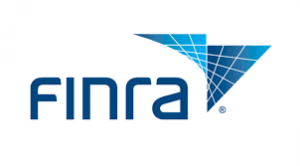
An AWC issued on July 1, 2021, reflects that FINRA suspended an FA formerly registered with David A. Noyes & Company (now known as Sanctuary Securities) for three-months and imposed a deferred fine of $5,000. This AWC demonstrates FINRAs ongoing concerns around the sale of leveraged and inverse exchange traded funds to retail customers. This week’s AWC is the book-end to an AWC issued in May 2021 against Sanctuary for a variety of violations, including the failure to establish, maintain and enforce a supervisory system designed to meet FINRAs suitability standards for non-traditional ETFs. Sanctuary was fined $160,000 and ordered to pay customer restitution of $370,161.
By way of background, the broker-dealer permitted FA Stuart Pearl to resign in March 2019. According to statements on BrokerCheck, Mr. Pearl resigned while on heightened supervision and the firm alleged that Mr. Pearl had not followed the heightened supervision plan.
Product at Issue: Non-Traditional ETFs
NT-ETFs are designed to return a multiple of an underlying index or benchmark, the inverse of that benchmark, or both, over only the course of one trading session — usually a single day. NT-ETFs typically rebalance their portfolios on a daily basis (also known as the “daily reset”). Due to the effects of compounding of daily returns during the holding period, the performance of NT-ETFs over periods longer than a single trading session “can differ significantly from the performance … of their underlying index or benchmark during the same period of time.” FINRA Regulatory Notice 09-31, FINRA Reminds Firm of Sales Practice Obligations Relating to Leveraged and Inverse Exchange-Traded Funds (June 2009). Because of that feature, FINRA has stated that “inverse and leveraged ETFs that are reset daily typically are unsuitable for retail investors who plan to hold them for longer than one trading session, particularly in volatile markets.” FINRA Regulatory Notice 09-31 at 1.
Rule at Issue: FINRA Rule 2111
To make a suitable recommendation, FINRA requires that FAs first understand the risks and rewards of a proposed investment. FINRA deems this a “reasonable-basis suitability obligation.” Thus, an FA can run afoul of Rule 2111 if the FA lacks an understanding of the product even if the product was otherwise appropriate given the investor’s wealth, willingness to bear risk, age, or other individual characteristics.
Facts at Issue
With the Pearl AWC, FINRA found that the FA failed to perform a reasonable basis suitability analysis for two reasons: (a) the customers held the NT-ETFs for periods ranging from 100 to 600 days; and (b) Pearl did not understand that losses in NT-ETFs compounded because of how valuations reset each day.
Herskovits PLLC maintains a nationwide practice defending FINRA and SEC investigations and enforcement proceedings. Please feel free to contact Robert Herskovits for a consultation at 212-897-5410.
 FINRA Lawyer Blog
FINRA Lawyer Blog

